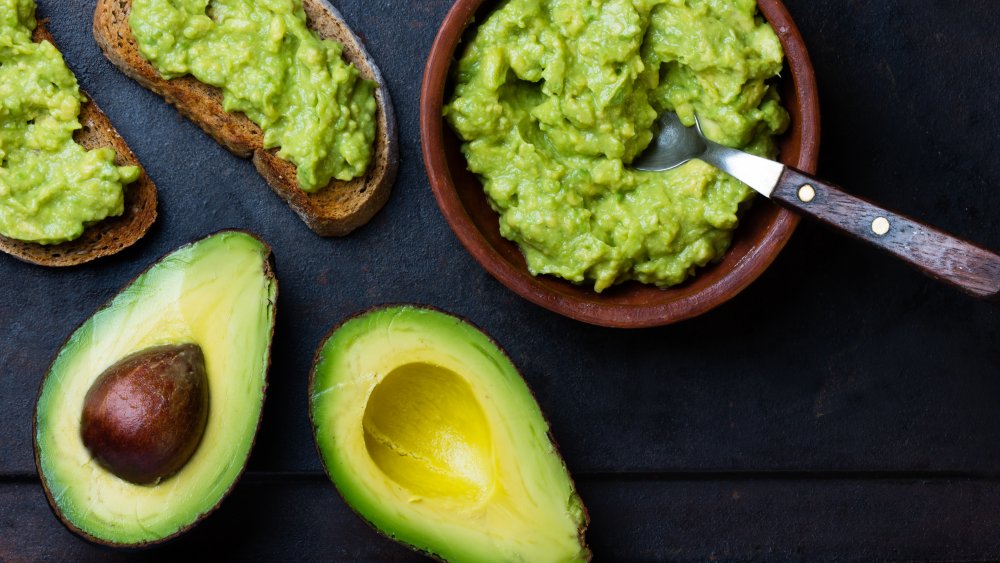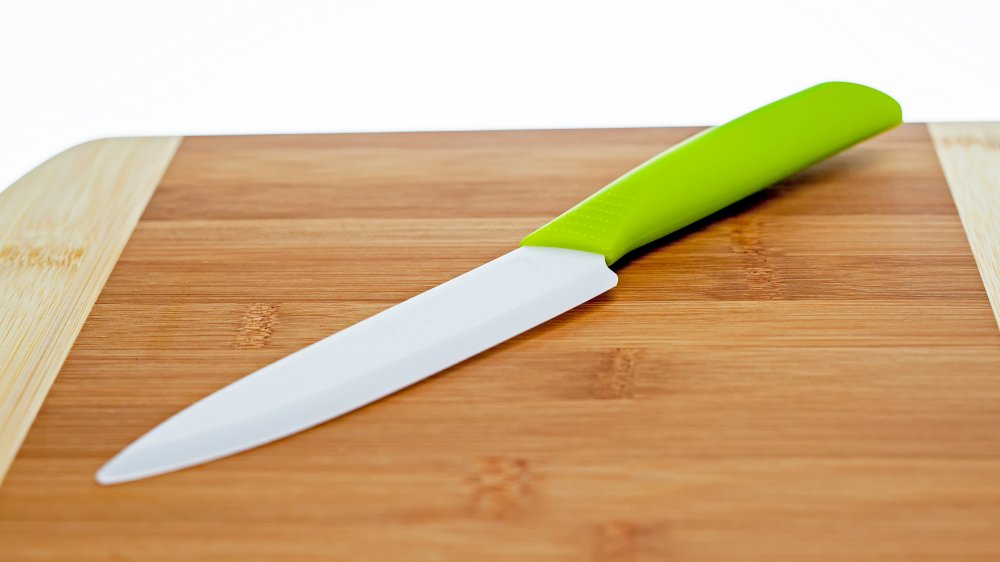The Reason You Shouldn't Use A Metal Knife To Cut An Avocado
Whether you like adding a few creamy slices to your cheeseburger, are trying to eat more heart-healthy fats, or can't get enough guacamole, chances are you've chopped an avocado or two in your day. But did you know that you actually shouldn't use a metal knife to cut an avocado?
Our first thought was, "Duh, that's how you get avocado hand," which is a medical affliction that happens when people cavalierly use a sharp knife to try to get the pit out of an avocado, but wind up missing the pit — and stab their hand instead.
While that is one reason to be wary of using a metal knife to cut avocados, there's another reason as well.
Why you should use a plastic or ceramic knife to cut avocados
The reason why avocados start to turn brown when you cut into them is because they contain an enzyme that reacts to oxygen once the flesh is exposed to the air (via Reader's Digest).
It turns out that using certain metal knives, like those that contain copper or iron, can start that process earlier, because those metals can have a chemical reaction with the avocado that starts the oxidation process earlier.
Ceramic knives, on the other hand, are inert and don't react with the avocado. People have even done comparisons between avocados cut with a ceramic knife and a metal knife to see if one causes the avocado to brown more quickly, and the experiment showed that the avocado cut with a ceramic knife stayed fresher for longer (via My Ceramic Knives).
Plastic knives are a safe bet too. Cook's Illustrated tested the same theory with heads of lettuce, using metal knives and plastic knives, and found that the plastic knife resulted in slightly delayed browning compared to metal knives.
For avocados that stay fresher for longer, try using ceramic or plastic knives.

